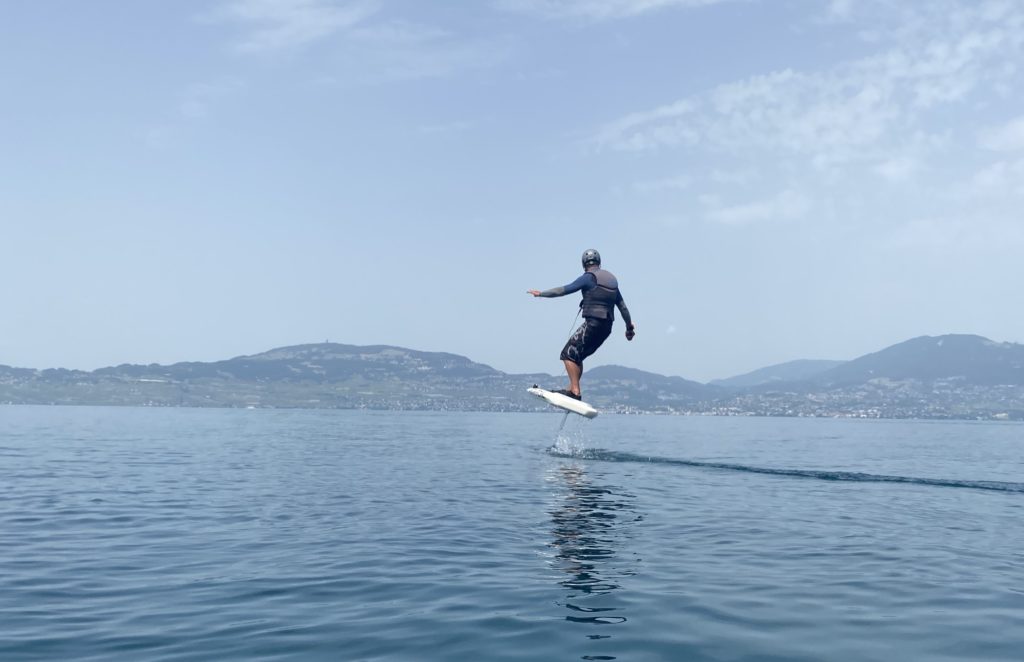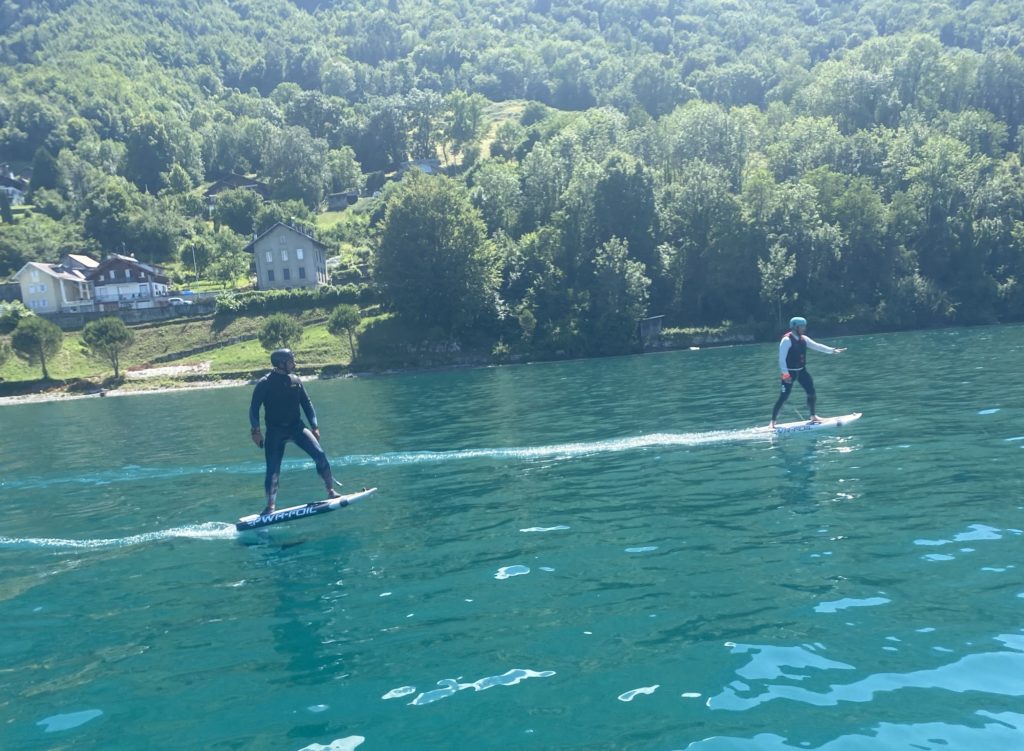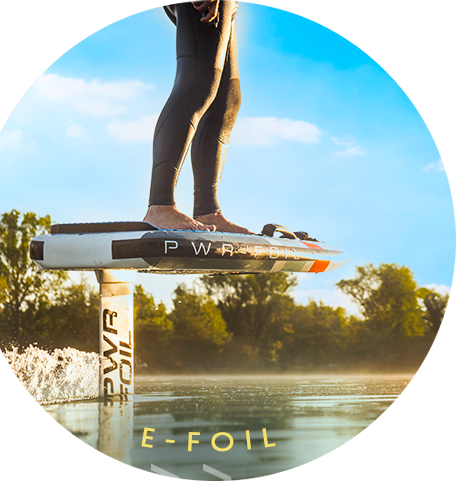Why are electric surfing and electric foiling banned on the Swiss side of Lake Geneva?

Le Lake Genevaone of Europe's largest lakes, is a paradise for water sports enthusiasts. However, there is a notable difference between Swiss and French regulations: on the Swiss side, the practice of electric surfing and electric foil is strictly forbidden, whereas on the French side, just a few kilometres away, these activities are permitted and even available for hire. But why such a difference? And what is an e-foil or e-surf? Let's find out together.

What is an E-Foil or E-Surf?
E-Foil (Electric Foil)
A e-foil is a board fitted with an underwater wing (foil) and an electric motor. The motor propels the board, and the foil lifts the board above the water, providing a smooth, silent sensation of flight.
E-Surf (Electric Surf)
A e-surf is a motorised surfboard equipped with an electric motor. Unlike traditional surfboards, it doesn't need waves to work, so it can be used on calm waters like Lake Geneva.
These machines are popular because they are fun, environmentally friendly (electric propulsion) and easy to use. However, regulations vary from country to country and region to region.

Why ban electric surfing in Switzerland?
1. Safety and cohabitation
The Swiss authorities believe that e-foils and e-surfs could represent a safety risk on the lake, particularly because of their speed and manoeuvrability. Lake Geneva is very busy with boats, sailboats, paddleboards and swimmers, which increases the risk of collisions. But on the French side, 15km away by boat, the situation is identical and there are no more accidents!
2. Lack of specific regulations
Unlike France, Switzerland has not yet established a specific regulations for these new machines. In the absence of clear rules, the authorities prefer to ban them to avoid any accidents or conflicts of use.
3. Environmental protection
Although e-foils and e-surfs are electric and therefore less polluting than petrol engines, the Swiss authorities could be concerned about the risk of a "carbon leak". impact on flora and fauna lake, particularly because of underwater noise or disturbance caused by the movement of the foil.
Why authorisation in France?
In France, e-foils and e-surfs are authorised under certain conditions:
- Respecting Zones Users must avoid areas reserved for bathers and boats.
- Limited Speed : Speed is regulated to minimise the risk of accidents.
France has adopted a more flexible approach, allowing these new technologies to develop while regulating their use.
A Paradoxical Situation electric surfing in Switzerland?
It is surprising to find that two such different sets of regulations coexist on the same lake. At just 19 km distance, practices authorised in Thonon-les-Bains (France) are prohibited in Geneva or Lausanne (Switzerland). This can be explained by :
- Different national laws : Each country has its own rules on sailing and water sports.
- Different priorities Switzerland focuses on safety and environmental protection, while France focuses on innovation and tourism.
The future of electric surfing in Switzerland?
With the growing popularity of e-foils and e-surfs, Switzerland may well review its position in the years to come. A appropriate regulation could make it possible to legalise these machines while guaranteeing safety and environmental protection. In the meantime, enthusiasts will have to make do with crossing the border to enjoy these activities.
